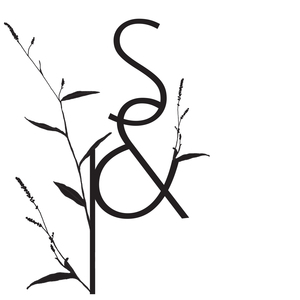After taking a bite from a peach, it jumped, as if of its own volition or by a jolt of electricity, from my hand. And in rotating through the air, it reached an impasse: to return to my hand or to plummet to the earth.
I, naturally, wanted to eat the peach. And so I reached for it. In spasmodic bursts, I overreached and sent it further into the air. I then under-reached and it began to fall again. The peach was meaninglessly suspended where it did not belong, and in this suspension became obsolete.
But was the peach not a peach and I not a human?
The fruits of the earth are perhaps the greatest gift that nature gives. For not only are they nourishing, they are shapely, soft, juicy, sexy—and their taste, equally delightful. But without being tasted, do they still delight?
A peach without a mouth is sumptuous and velveteen, its flesh mimics the glowing summer sunset. It intrigues among leaves and grass of green and soil of brown and black. And so, it is aesthetically pleasing, but it is not substantially pleasing.
To a pollinator, the contents of a flower may be as divine as a peach to a human. But to humans flowers remain mostly within the realm of the aesthetic and only peripherally affect us.
I could not let the peach fall to the ground uneaten. I reached again and caught the slippery side where my mouth made the first bite. The peach shot into the air for another somersault.
My hand was sticky; my mouth wanted more, and the peach remained airborne. Why did I instinctively resist the peach’s fall to the earth? Convenience—not wanting to bend over to pick it up? Or was it my animal instinct to continue eating, to nourish my body, to taste good flavor? Or perhaps it was my capacity for complex thought, my prescience, that knew that a peach is as good as it can be when delivered directly to my mouth in prime ripeness, or that once the peach reached the earth, it would come into contact with dead stuff—rocks, sticks—and living organisms—microbes, plants—and this contact with the earth would effectively render the peach less desirable, in need of cleansing.
Why reach for the peach?
For the peach to best serve me, did I not need to catch it? If I let it fall without a struggle, to become sullied by choice, bruised by its impact with the earth, would it not still be my choice to eat or not eat the peach?
As the peach, I am presented with a cruel dichotomy: either the hand that held me lost me because it allowed me to fall from its grasp, knowing that it might take me again, wash me, and consume me, yet only after an unnecessary struggle; or my biological condition resisted the grasp—by being bitten, slippery, sticky, I escaped, even though the hand reached for me, struggled with me, made several attempts to grab me, and eventually, the hand, master of itself, would focus its intention and succeed in holding me, enjoying me, and delivering the remainder of me to a mouth.
I caught the peach, laughed at myself, and ate it as quickly as I could. Another errancy, a random act, a peach without purpose, would not happen on my watch—whether I could control it or not.
Written by Gresham Cash
Photographed by Jodi Cash

